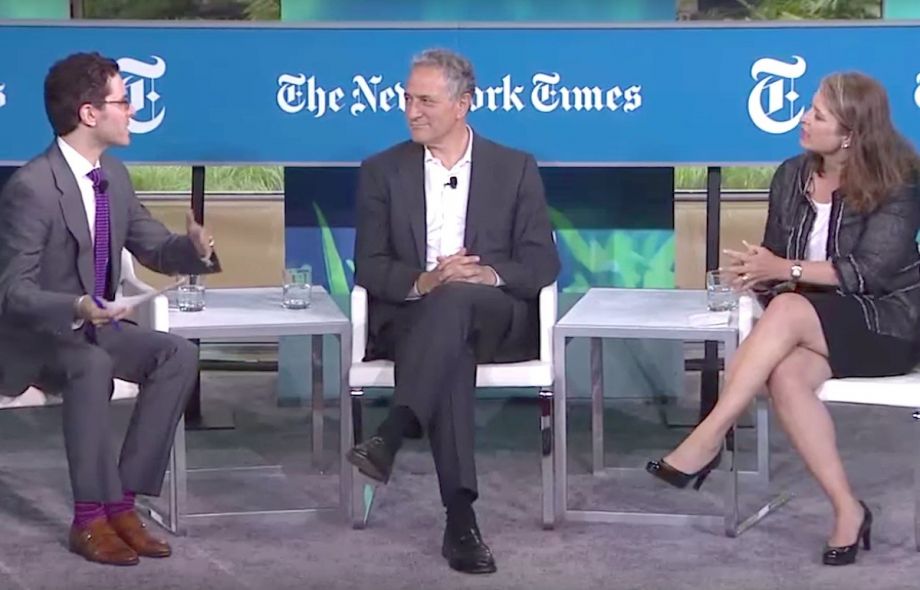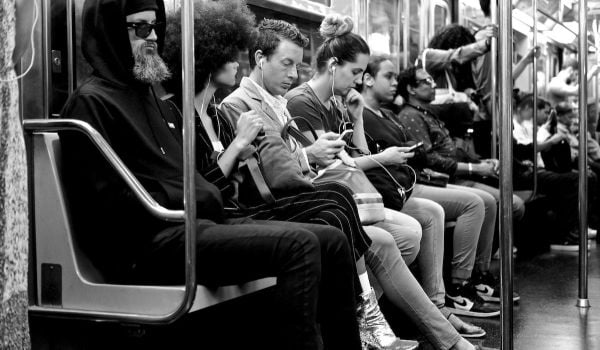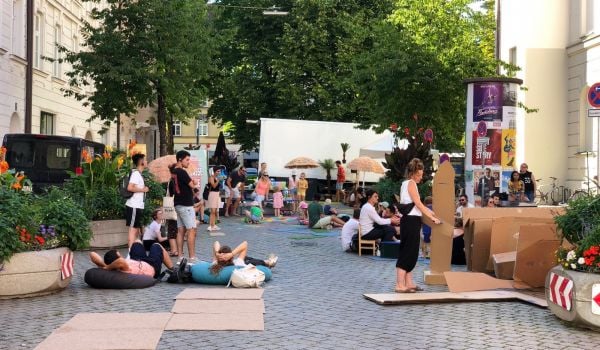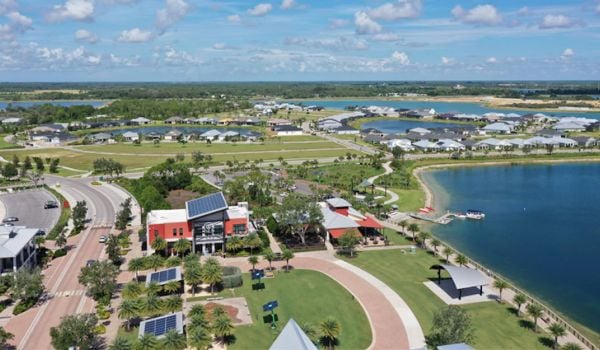“The future ain’t what it used to be,” or so said Yogi Berra. He would have been doubly perplexed at a recent conference in New York. As a media partner of the New York Times’ Cities for Tomorrow conference, Next City was part of an event that gathered thought leaders and sought out the latest urbanization trend and ideas from businesses, governments, academia and more.
Here, the 11 most notable things I heard at the conference.
1. A Central Park-Style Courtyard. Starchitect Bjarke Ingels described his latest NYC project using the nickname “courtscraper,” which nods to his courtyard/skyscraper concept. The building’s interior courtyard has the same proportions as Central Park, but is 13,000 times smaller. I predict this project, in conjunction with the hanging gardens of 2 World Trade Center and BIG’s “Big U” Rebuild by Design solution will redefine great design as requiring from the get-go that buildings and infrastructure be both beautiful and functional. Daniel Burnham would be proud.
2. Resilience is turning challenges into ideas. Times architecture critic Michael Kimmelman provided that definition of resilience to frame the conference’s conversations, including a presentation by Rockefeller Foundation President Judith Rodin. (See below.)
3. Big Data is here to stay. / Predictive policing is the future. I’m not sure which statement from NYC Police Commissioner William Bratton is more true or more frightening. The success of CompStat is indisputable, yet the potential for abuse causes all who care about cities to pause. Yes, crime is down, but are civil liberties at risk?
4. Celebrate equitable cities. HUD Secretary Julián Castro provided a clarion call for investing in cities and affirmatively furthering affordable housing. He concluded by saying, “I love that Americans seem to be falling in love with cities again.”
5. Infraculture. In speaking about his work to inspire the Atlanta BeltLine, Ryan Gravel, founding principal of Sixpitch, reminded us of this term when considering how to make everyday paths more exciting.
6. Gateway tunnel is one of the most important, if not the most important project in the country not built. In a prescient moment that anticipated massive transit delays later in the week due to outdated and fragile rail infrastructure, U.S. Transportation Secretary Anthony Foxx expressed both frustration and hope that regional leadership would overcome the current stalemate over building a new passenger rail tunnel into New York City. While I recognize that the federal government wants willing partners on projects of national significance, at some point the adults in the room must lead. Governor Christie, come home; Governor Cuomo and Mayor de Blasio, become more engaged; and Secretary Foxx, bring a solution that shares the burdens and the benefits. The rest of us should find a way to prosecute the inaction as a blatant form of malpractice that is squandering our infrastructure inheritance.
7. 75 percent of urban infrastructure of 2050 has yet to be built. Nodding to that increasingly familiar stat, Rockefeller Foundation President Judith Rodin called on the audience to “unleash an entire resilience age” and make the “resilience dividend” worth pursuing. Gateway, everyone?!!
8. Qatari royals own more land in Central London than the British royals. Leave it to Saskia Sassen, chair of the Committee on Global Thought at Columbia University, to get to the heart of the matter by asking, “Who owns the city?” Central to this question are concerns over displacement and inequitable development. Toni Griffin, founding director of the J. Max Bond Center on Design for the Just City at City College of New York, believes the keys to breaking inequity are access to a series of choices, and providing affordable housing wherever we can put it as the first goal.
9. Iterative placemaking. John Bela, associate with Gehl Architects and the inventor of “Parking Day,” extolled the virtues of events where citizens, artists and activists collaborate to transform parking spaces into temporary public parks. “You make your city great,” he said.
10. You can break any law you want — as long as you wear an orange vest. With some ingenuity and good old-fashioned chutzpah, Jason Roberts became the driving force for a new streetcar in Dallas. Although he recommended that we “think small,” he clearly brought big changes. Orange truly is the new black!
11. In order to be progressive, you need to be prosperous. / In order to be prosperous, you need to be progressive. An exchange between Daniel Doctoroff, CEO of Sidewalk Labs and NYC Deputy Mayor Alicia Glen pointed to the two sides of the coin of economic growth.

Tom was president, CEO and publisher of Next City from May 2015 until April 2018. Before joining Next City, he directed the Center for Resilient Design at the College of Architecture and Design at the New Jersey Institute of Technology. Prior to that, he ran the Regional Plan Association’s New Jersey office, and served as a senior adviser on land use for two New Jersey governors. Tom is a licensed professional planner, and a member of the American Institute of Certified Planners, as well as an adjunct professor at the New Jersey Institute of Technology, where he teaches land use planning and infrastructure planning.







_1200_700_s_c1_600_350_80_s_c1.jpg)









